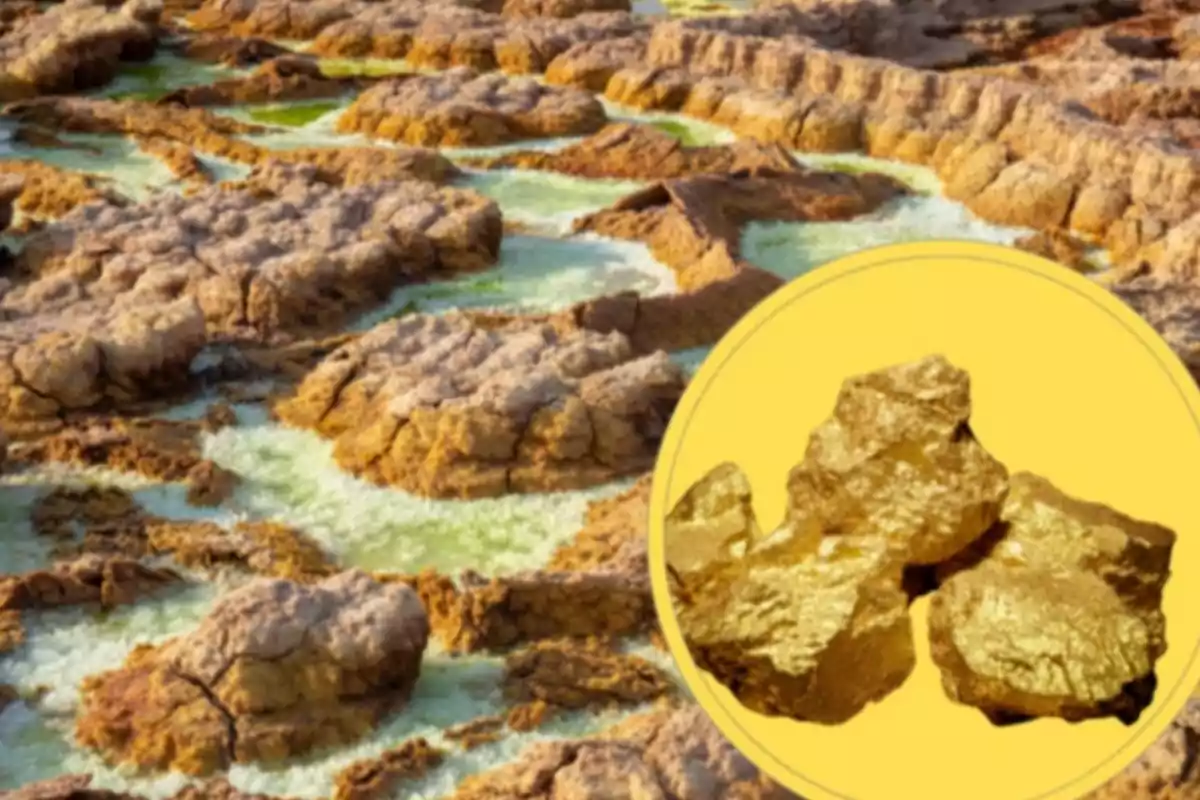China's Hunan province has just made global headlines. In Pingjiang county, a gold deposit with more than 1,000 metric tons (1,102 short tons) of the precious metal has been discovered. According to initial estimates, this find could exceed $80 billion in value.
The quality of the ore is also impressive: each metric ton (2,204 lbs.) extracted contains, on average, 138 grams (4.87 oz.) of gold. That's five times more than what's considered profitable in many parts of the world. In addition, the veins extend up to 1.9 mi. (3 kilometers) deep, making this deposit one of the largest ever found.
This discovery not only strengthens China's position as the world's leading gold producer, but it could also redefine the global economic balance in the coming years.

Technology and artificial intelligence: the key to success
The most surprising thing isn't just the amount of gold, but how it was found. Unlike traditional techniques, this deposit was identified thanks to the use of artificial intelligence and state-of-the-art sensors.
Geologists used algorithm-driven drilling, spectral analysis of rock cores, and advanced seismic mapping. Thanks to these methods, they were able to detect very subtle geological signals that would've gone unnoticed just 10 years ago.
This is a clear example of how technological innovation is changing the way natural resources are explored. If this approach is replicated, we could be facing a new era of mining discoveries.
Global impact on gold and geopolitics
Although commercial mining of the site will still take time, markets have already reacted. Gold is a key asset in times of uncertainty, and this find positions China even more as a dominant player in the global economy.
With this new deposit, the Asian country could control more than 15% of the world's raw gold on its own. This not only strengthens its strategic reserves, which already exceed 2,000 metric tons (2,205 short tons), but also gives it a powerful tool to diversify its economy and reduce its dependence on the dollar.
In addition, gold is essential for sectors such as electronics, clean energy, advanced medicine, and quantum technology. China could gain a competitive edge on all those fronts.
Environmental challenges and looking to the future
It's not all glitter and gold. Deep mining poses serious environmental and social challenges. NGOs have already raised their voices, calling for transparency and responsible management of the project.
Intensive energy use, possible water contamination, and the impact on rural communities are sensitive issues that can't be ignored. The question now is whether China will be able to combine this economic opportunity with a sustainable approach.
In any case, the world is watching. Pingjiang has become the new epicenter of the 21st-century gold rush.

